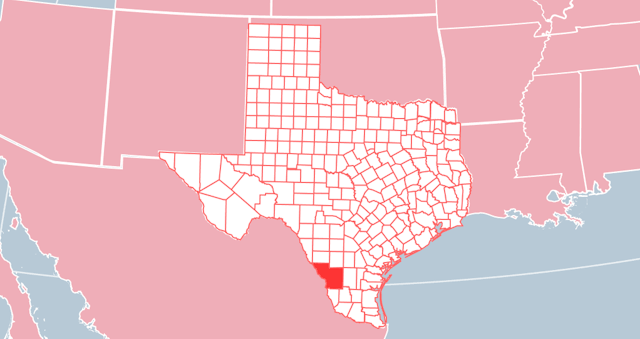Rehabs in Webb
Webb County is a part of the US state of Texas. Laredo is its administrative center. According to the 2020 US Census, the region’s population was 267,114. By area, this region is the largest in South Texas. It is a part of the Laredo metropolitan area.
This area is fighting against the dreadful consequences of substance abuse. Its presence in the community shows the amount of damage that it has caused. For example, in 2017, 16% of the local adults reported excessive drinking. Moreover, according to County Health Rankings, between 2014 and 2018, there were 36 alcohol-involved driving fatalities (25% of all driving deaths). From 2016 to 2018, there were 97 drug overdose deaths per 100,000 population.
The opioid epidemic has also led to a large number of deaths (27 opioid overdose deaths only in 2017). One of the widely spread opioids here is heroin. It is extremely addictive and can easily poison lives.
The statistics mentioned above show the necessity of effective treatment in this area. Many drug and alcohol rehabs in Webb County, Texas are trying to provide quality services and heal society. Keep reading the article to reveal all the details on the recovery plans of these centers. Hence, find the rehab that best suits your needs.
Available Treatment Options
Webb County is widely affected by alcohol and drug epidemics. So, the state bodies and rehabs in Webb County, Texas are trying to fight against the epidemic through the introduction of new services and new recovery plans. Moreover, local drug and alcohol hubs are to help you overcome dependency and bring positive changes in your life. That is to say, they offer various treatment options; inpatient and outpatient plans, detox, substance abuse evaluation, luxury, free hubs, etc.
Inpatient Program
This type of care requires the patient’s stay in the facility 24/7. So, the patient has round-the-clock access to medical and emotional support. The main advantage of staying in a hospital-like environment is that all the withdrawal symptoms can be controlled and treated with medication. Thus, the person focuses on the healing process and doesn’t care about withdrawal. Moreover, it is a time away from triggers. A person receives special skill education, and peer and aftercare support.
Outpatient Care
The outpatient program is part-time care and is for individuals who are in more stable mental and physical condition. That is to say, they don’t need round-the-clock medical supervision. Hence, the patient has to spend from 10 to 20 hours at the hub weekly. It includes the same programs as inpatient care, however, the schedules are more flexible, and a person may also attend to daily activities.
Types of Local Rehabs
Different hubs in this area offer special support services to those in recovery. Find such rehabs as:
- Faith-based and Christian: where the faith or religion is a part of the healing process.
- Luxury: these facilities provide luxury amenities, for instance, a spa, fitness activities, access to electronic devices, private rooms, and chef-cooked meals.
- Executive: this is perfect for business professionals who can’t spend time away from their companies.
- Holistic: offers alternative treatments to the individual in need; for instance, yoga, meditation, music therapy, art, fitness, tai chi, acupuncture, etc.
- Dual-diagnosis: the main stress is on the connection between mental health and addiction. Treating physical and mental health at the same time promotes overall healing.
Choose the treatment that best suits your necessities and obtain life-long recovery.
Costs
Local facilities vary in cost. Some of them are expensive and may require thousands of dollars, while others can offer free services to residents who meet their eligibility criteria. Amenities may also increase the cost.
Many state-funded rehabs provide services at low or no cost to eligible recipients. so, contact the local Web County mental health and substance use program to find a provider. The acts of Mental Health Parity and Addiction Equality also allow private and state insurance companies to cover the costs of the hub. Call the insurance agency, to determine the amount of coverage.
Medicaid and Medicare are state programs that give insurance coverage. Get more information by contacting the Texas Health and Human Services Department.
Among popular private insurance plans are:
- Aetna
- Ameri Plus
- Magellan
- Blue Cross Blue Shield
- Cigna
- United Healthcare
Each agency has its insurance plans. Some of them even develop a coinsurance plan, where they pay a part of the fees and you pay the other part. To clarify, your financial responsibility may be 20% or a little bit more.

